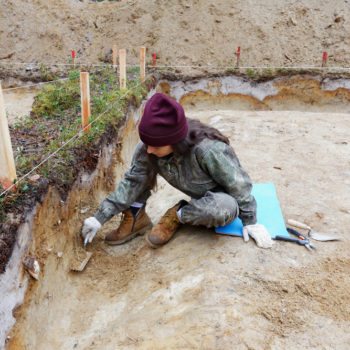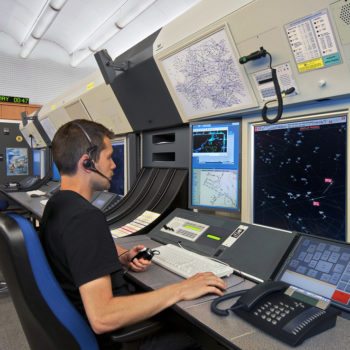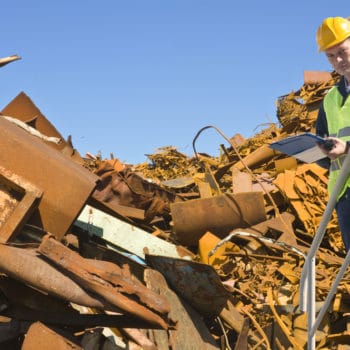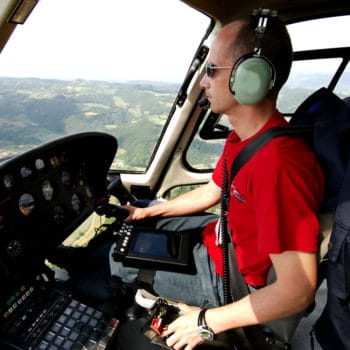Why We Love It
-
$60,090Potential Avg. Salary
-
26.4%Job Growth Rate
-
Growing DemandJob Outlook
-
Growing IndustryCareer Attribute
Forensic scientists analyze evidence collected as part of crime investigations. Some examples of the types of analysis forensic scientists use are DNA testing on blood and fluid samples, bullet and casing analysis to identify weapons used in crimes, and handwriting analysis to identify forged signatures.
Recommended Schools
What is a Forensic Scientist?
The following job responsibilities are common for individuals in forensic scientist roles:
- Collect evidence at crime scenes or review evidence collected by detectives and police officers
- Determine ways to analyze crime evidence to elicit identifying information
- Develop new techniques and technologies for evidence analysis
- Analyze biological samples, documents, chemicals, weapons, and fingerprints
- Testify in court proceedings about findings and methods
A Day in the Life
Between the collection of evidence during police investigations and presentation of evidence as facts in court proceedings are forensic scientists who help transition findings into proof. Forensic scientists work on a variety of crimes, helping to identify perpetrators and prove guilt through the scientific analysis of evidence. Forensic scientists usually specialize in a specific area of analysis and work to elicit factual, provable information from otherwise random pieces of evidence using scientific approaches.
Forensic scientists may work in a number of specialties. Some focus on biological analysis and work to identify the DNA of blood and other bodily fluids discovered at crime scenes. Others identify fingerprints, analyze bullets or casings found at crime scenes to attribute those back to specific weapons, or analyze blood splatter to create a scientifically sound story of the events leading up to an assault or murder. Often, forensic scientists testify in court about their methods and findings.
Other forensic scientists specialize in handwriting analysis, computer technology, weather patterns—just about any area where information can be gleaned to help solve crimes. Handwriting analysts can determine whether or not documents have been forged, computer analysts can identify signatures of hackers, and weather pattern analysts can determine if fog is naturally occurring or the result of a chemical plant’s production methods. Forensic scientists use their knowledge in all of these roles to help solve crimes and invent new means of scientific analysis in their fields.
Typical Work Schedule
Forensic scientists usually work at the normal schedule of 40 hours per week. However, the work is not always regular as they need to work in crime scenes, laboratories or both. The work can be done during the day, evening or night shifts. They may also have to work overtime when there is a challenging case that needs more effort to be solved. In general, forensic scientists working in the laboratory have more regular work schedule compared to those working in the field. It should also be noted that working in forensics is somehow stressful as the results can significantly affect the lives of people and their rights.
Projected Job Growth
According to the US Bureau of Labor Statistics, the employment of forensic scientists is expected to increase by 14 % from 2019 to 2029 which is much faster than the average for all the other jobs. The increased rate is due to state and local governments hiring additional forensic scientists to be able to manage the higher rates of cases. In addition, recent scientific and technological advances lead to the increased availability, reliability, and usefulness of objective forensic information used as evidence in trials. As a result, the importance of forensics is growing as essential part of the law enforcement and juridical system.
However, due to the nature and size of this profession the number of added job opportunities may be limited so you have to consider this before applying. There are currently around 17,200 forensic scientists in the US and the expected increase is around 2,400 vacancies only in this period. You can expect a decent level of competition for this job and studying a graduate degree can give you a better edge over the others.
Typical Employers
The typical employer for forensic scientists is the government as part of the police force and other law enforcement units. This means working for the local government which is the most common case. Others can work for the state or the federal governments which is usually more rewarding. There is also a chance to work in the research and academic field developing new methods for analysis or diagnosis.
Recommended Schools
How To Become a Forensic Scientist
The starting point for a career as a forensic scientist is a bachelor’s degree in forensic science or a related field, such as chemistry, biology, physics, psychology, or anthropology. Regardless of major, students should make sure to take classes that require laboratory testing, mathematical analysis, scientific experimentation, and written and verbal communication refinement. These are all important components for success as a forensic scientist, a field which requires both accurate scientific analysis and effective communication.
For aspiring forensic scientists who aspire to become crime scene investigators or work for police departments, entering and completing police academy training may also be required. After earning a bachelor’s degree, you need to enroll in a training academy with a local police department. After completion of police academy training and passing required written and psychological tests, you’ll be a qualified police officer with the education required to work as a crime scene investigator.
For individuals who want to work in independent research or for federal agencies, a master’s degree is usually required, and a Ph.D. is required in some cases. In graduate degree programs, students choose a specialty that becomes the focus of their careers. They study the basics of that discipline and how the best practices of forensics in that field can be applied to analyze evidence and establish proof in different types of criminal investigations and trials.
Forensic Scientist Salary Data
We’ve provided you the following to learn more about this career. The salary and growth data on this page comes from recently published Bureau of Labor Statistics data while the recommendations and editorial content are based on our research.
National Anual Salary
Low Range
$42,320Average
$60,090High Range
$94,410National Hourly Wage
Low Range
$20/hrAverage
$29/hrHigh Range
$45/hrHow do Forensic Scientist salaries stack up to other jobs across the country? Based on the latest jobs data nationwide, Forensic Scientist's can make an average annual salary of $60,090, or $29 per hour. On the lower end, they can make $42,320 or $20 per hour, perhaps when just starting out or based on the state you live in.
Salary Rankings And Facts
#269 Nationally for All Careers
Above Average Salary Nationally
Programs and Degrees
Here are the most common degrees for becoming a Forensic Scientist. a is usually recommended and specifically a degree or coursework that prepares you for the particular field, see below.
Highest Education Among Forensic Scientists
- 5.5% Doctorate
- 10% Masters
- 32.5% Bachelors
- 11.1% Associates
- 22.8% College
- 16.2% High School
- 2.1% Less than High School
Job Growth Projections and Forecast
2014 Total Jobs
14,4002024 Est. Jobs
18,200Job Growth Rate
26.4%Est. New Jobs
3,800How does Forensic Scientist job growth stack up to other jobs across the country? By 2024, there will be a change of 3,800 jobs for a total of 18,200 people employed in the career nationwide. This is a 26.4% change in growth over the next ten years, giving the career a growth rate nationwide of Above Average.
Growth Rankings And Facts
#23 Nationally for All Careers
Above Avg. Growth Nationally
What Companies Employ The Most Forensic Scientists
| Industry | Current Jobs | New Jobs Needed | % Increase |
|---|---|---|---|
| Local government, excluding education and hospitals | 8,400 | 2,200 | 2% |
| State government, excluding education and hospitals | 4,300 | 900 | 1% |
| Medical and diagnostic laboratories | 500 | 400 | 0% |














